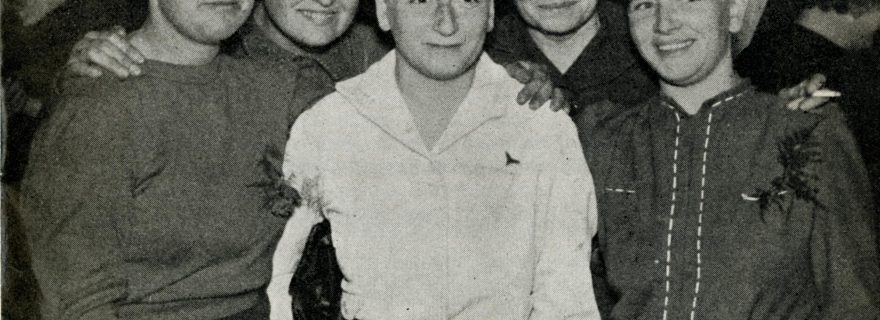'We were no Florence Nightingale'
The Spanish Civil War hardly plays a role in the Dutch collective memory – only recently it is occasionally brought up as a comparison to Islamic State and the foreign fighter phenomenon.
Between 1936 and 1938, thousands of young men and women from all over the world travelled to Spain to support the Spanish Republic and the fight against Franco. The Spanish Civil War hardly plays a role in the Dutch collective memory – only recently it is occasionally brought up as a comparison to Islamic State and the foreign fighter phenomenon. Yet, over seven hundred Dutch men and women undertook the long journey to Spain. The International Institute for Social History in close cooperation with the Stichting Spanje 1936-1939, a Dutch foundation that works to keep the memory of the Spanish Civil War alive, has recently launched a database with the biographical information of almost all the Dutch men and women who travelled to Spain to support the Spanish Republic. This blogpost focuses on the Dutch nurses who travelled to Spain. What motivated them?
It was mainly the Dutch Communist Party that organised support for the Spanish Republic. The Party viewed the advance of Franco as part of an international rise of fascism that was spreading from Germany and Italy and threatened all of Europe. Many of the Dutch nurses had ties to the Communist Party or sympathised with communist ideas. Others had affiliations with the Social Democratic Workers Party (SDAP) or with other left-wing movements. Despite their differences in political affiliation, they were – as they themselves stressed – above anything else, antifascists.
For many women, next to humanitarian motivations, the political developments in Germany and the stories of German refugees – communists, Jews, political opponents of the rising Nazi regime – were the reason to support the Republic in Spain. The communist nurse Trudel van Reemst explains that she wanted to help in the fight against fascism. She strongly stated: 'We were no Florence Nightingale,' clearly distancing her role as well as that of her colleagues from one of most well-known and dedicated nurses. This political motivation is echoed in many of the interviews with nurses who travelled to Spain; their profession enabled them to express their political ideals.
The stories of over twenty nurses who travelled to Spain between 1936 and 1939 are recorded in the database of the International Institute for Social History on www.spanjestrijders.nl (in Dutch). An article by Seran de Leede and Hinke Piersma on the topic has appeared in the Dutch magazine Groene Amsterdammer on 28 July 2016.


